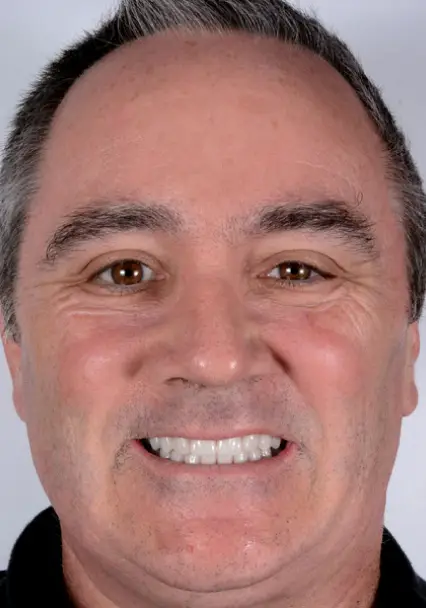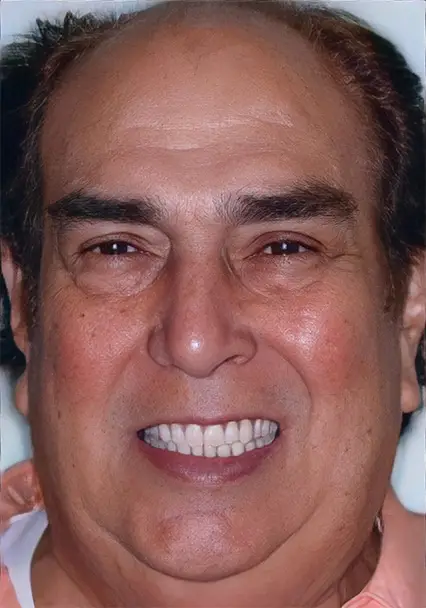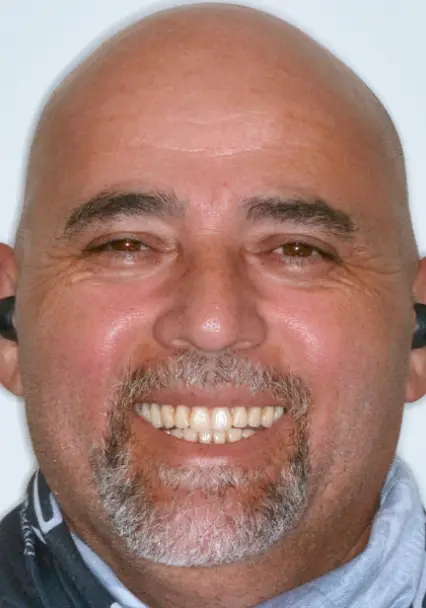Home / Dental Services / Endodontist
Endodontist in Miami, FL
Endodontist Benefits
01
Tooth Preservation
Endodontic treatment focuses on saving natural teeth that would otherwise require extraction. By addressing the root cause of tooth pain or infection, endodontists can preserve the natural tooth structure.
02
Pain Relief
Endodontists specialize in alleviating tooth pain caused by infection or inflammation. Their expertise in root canal procedures allows patients to find relief and maintain their natural teeth.
03
Oral Health Maintenance
By treating and preventing tooth infections, endodontists help patients maintain optimal oral health. Preserving natural teeth through endodontic procedures contributes to the overall functionality and aesthetics of the smile.
Just like any other part of the body, the teeth are prone to traumatic injury, which can occur during accidents, sporting events, fights, or even day-to-day activity. Traumatic injury may be something as simple as a chipped tooth (the most common dental injury) or as severe as a knocked-out tooth. Dental restoration has come a long way, and today there are options for people who experience trauma to one or more teeth. If you have suffered a traumatic dental injury, our practice will help you find a Miami endodontist to go over your options.
What is Endodontic Treatment?
Endodontists specialize in treating the inside of the tooth and the roots of the teeth. The teeth contain tooth “pulp,” a substance that contains blood vessels, nerves, and connective tissue, and helps the teeth to grow. Once the teeth are fully formed, the tooth does not need the pulp, so it can be removed and replaced should it become infected. This is the basis of endodontic treatment: removing infected tissue inside the teeth and saving the natural tooth.
While damage to the tooth pulp can occur through tooth decay, traumatic dental injuries can also trigger problems within the tooth and the tooth root. This is why a Miami endodontist should take over cases involving trauma and restoration. Even an injury as simple as a chipped or cracked tooth can cause damage to the pulp, so it is important to seek help from an endodontist as soon as you notice any damage to your teeth.

Traumatic Dental Injuries in Children
In many ways, traumatic dental injuries in children are less serious than the same injuries in adults. If a primary tooth is dislodged or knocked out, it is typically not necessary (and often ill-advised) to replace it, since the permanent teeth have not yet emerged. However, for dislodged teeth and similar injuries, a root canal may be necessary, and an endodontist should monitor the tooth’s progress on a regular basis until the problem is resolved. Children’s teeth are often able to recover with careful treatment from a specialist, and root canals are often unnecessary, even if permanent teeth have begun to come in. Our Miami endodontists will evaluate each case carefully to determine the best course of treatment.
Dental Injury Restoration
Because dental injuries vary so greatly, there is no one specific technique used for surgery and restoration. However, there are different standard methods that are often used, based on the type of injury.
Chipped / Fractured Teeth
The most common tooth injuries are often not too serious. Simple chips and cracks can usually be fixed by reattaching the broken areas or adding a natural-colored filling to the tooth area to improve the aesthetics of the tooth. Some teeth may require an artificial cap or crown. These sorts of simple fixes can often be performed with or without local anesthesia. However, if there is damage to the tooth pulp or a deep crack/cleft in the injured tooth, it may require root canal therapy (a common and straightforward procedure) or even extraction in severe cases.
Dislodged Teeth
Teeth that are knocked out of position or otherwise dislodged need special care and attention. It is possible for an endodontist to stabilize the tooth and perform a root canal procedure to address the damaged pulp of the tooth, which can become infected after a traumatic injury such as dislodged teeth. The root canal should be done as soon as possible after the injury, and a second, more permanent root canal procedure may be needed later.
Avulsed Teeth (Knocked Out)
Many people are surprised to learn that all is not lost when the teeth are knocked out completely. Thanks to advanced techniques, an endodontist can sometimes save the tooth if action is taken immediately. If a tooth is knocked out, it should be touched and handled as little as possible, especially near the roots en route to the dentist. The tooth will be placed back into its socket, and a splint will be placed to hold the tooth in place while it heals. The tooth will need root canal treatment at least once, possibly twice, to help save the tooth. Not all knocked out teeth can be saved, as the chances of survival depend on many different factors.
Root Fractures
A root fracture is often treated in the same way as a knocked-out tooth: the tooth is stabilized and root canal therapy is used to help save the natural tooth. Generally the closer the fracture is to the end of the root, the better chance there is for saving the tooth. Only an endodontist can suggest the proper treatment plan for root fractures.
Post-Endodontic Treatment Care
The recovery from a traumatic dental injury treatment depends largely on the procedure and type of injury performed. Chipped teeth require little to no special care, while dislodged and avulsed teeth require many more precautions, for which patients will receive careful instruction. These teeth will require ongoing monitoring for the next several years to ensure the body does not reject the tooth and the surrounding areas heal properly.
How Much Will the Endodontic Treatment Cost?
There are no hard-and-fast rates for traumatic dental injuries, simply because each procedure is unique and multiple procedures may be needed to repair and restore the teeth. Dental insurance will sometimes cover these types of procedures, so it’s important to understand your policy completely.
An Overview of an Endodontist Appointment
Preparing for Your Visit
When you experience tooth pain or other dental issues, it’s important to seek the care of a dental specialist as soon as possible. Endodontists specialize in soft tissue care and treatment options for damaged teeth. The goal of an endodontist is to provide the highest quality of care while preserving the natural teeth for life.
Before your visit, it is important to discuss your medical history with your dentist or endodontist so that they can create a pre-treatment plan that considers any underlying health conditions. It is also important to provide detailed information about your current dental condition, such as any pain or discomfort you may be experiencing, treatments you have received in the past, and how long symptoms have been present.
During Your Visit
During your visit at the endodontist office, the doctor will complete a thorough evaluation of your mouth, including a visual inspection and X-rays. If necessary, the endodontist may also perform special tests such as electrical stimulation, which can help determine if there has been damage to nerve endings. From this information, the doctor can then create an appropriate treatment plan based on the severity of the problem.
It is important to ask questions during your visit so that you fully understand all aspects of your treatment plan, including any risks and benefits associated with it. Once a decision has been made regarding which option is best for you, follow all instructions given by your dentist or endodontic specialist in order to ensure successful results from your treatment.
X-Rays and Diagnostic Tests
Digital X-Rays and diagnostic tests are essential components of the care provided by experienced endodontists. These technologies allow a professional endodontist to view the structure of teeth, bone, nerves, and other soft tissue in greater detail than ever before. By using digital X-rays and other types of diagnostic tests, an experienced endodontist can provide you with a comprehensive evaluation to determine the cause of your dental pain or discomfort.
Once a problem has been properly diagnosed by your experienced endodontist, they may decide that a surgical procedure is necessary. Endodontic surgery is used to treat issues that cannot be addressed through non-surgical procedures such as root canal therapy. The type of surgery performed depends on the severity of the issue and could include anything from minor repairs to more complex reconstructive surgeries.
Endodontic surgery requires superior technical skills and experience, and so it’s important to seek out professional care from an experienced endodontist who has specialized training in this field. An experienced endodontist will be able to explain all aspects of the procedure and provide details about any associated risks or benefits.
The Root Canal: What Happens During the Procedure?
Endodontic treatment is a procedure that helps save teeth and prevents the need for extraction. During the appointment, an experienced endodontist will carefully examine the affected tooth or teeth and take X-rays to assess the condition of your dental pulp and surrounding tissues. Afterward, they will discuss all available treatment options with you so that you understand what needs to be done for optimal care.
The actual procedure involves accessing the center of the tooth with an endoscope to remove damaged dental pulp, which is the nerve and blood vessels within a tooth. The endoscope also allows your endodontist to clean out any bacteria or debris in order to prevent further infection. Once cleaned, they can then fill any gaps or spaces with a special material known as gutta-percha before sealing the entire area with cement.
At this point, your endodontist will discuss how best to care for your new dental structure in order to maintain a beautiful smile for years to come. They may suggest regular checkups and cleanings along with proper oral hygiene practices, such as flossing and brushing twice daily, in order to ensure that everything remains healthy. Finally, if necessary, they may even suggest restorative treatments such as veneers in order to improve aesthetics or strengthen weakened areas of the tooth structure.
Overall, when it comes to providing quality dental care to patients suffering from damaged teeth, an experienced endodontic specialist is essential in ensuring successful results while preserving natural teeth for life. With their expertise and advanced technology, these professionals are able to provide excellent care while helping improve patient smiles one at a time!
Our Work Speaks for Itself
What Our Patients Say
Committed to your results

Why Choose Dr. Gallardo as Your Endodontist
- Dr. Gallardo has 30 years of experience offering dental implants and specialized periodontics to patients throughout South Florida.
- Dr. Gallardo is a graduate from the University of Miami and received his Doctor of Dental Surgery degree from New York University College of Dentistry.
- Accepted into the V.A. Medical Center General Practice Residency Program of the U.S Department of Veterans Affairs where he was honored with the “Outstanding Resident of the Year” Award.
- He has lectured nationally and internationally to dentists and hygienists and has been sponsored by companies such as Procter and Gamble to speak on clinical topics related to gum disease and implant dentistry.
- Dr. Gallardo remains a leader in periodontics and implant dentistry through his active and past involvement with University of Florida, Florida Association of Periodontists and North American Society of Periodontists.









